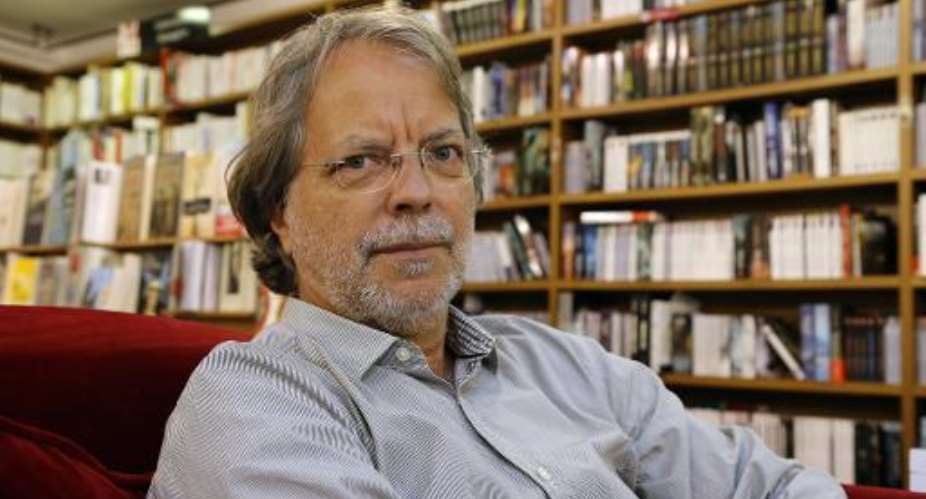Paris (AFP) - Forty years after its independence, Mozambique remains a nation under construction, fraught with divisions that threaten to drag it back into war, said Mia Couto, one of the country's leading writers.
"We are searching for one identity," the award-winning author told AFP while in Paris to promote his new novel, "Confession of the Lioness".
"This is a country searching to be a nation, just one nation, starting from a very strong diversity," he added.
The southern African country of some 25 million is home to 21 languages as well as a mix of cultures and religions that range from Catholicism to Islam. At the same time, Mozambique has a painful past of war and upheaval.
Rebels fought a war against colonial master Portugal that ended in 1974 and was followed by Mozambique's independence a year later. On the heels of that fighting came the country's brutal civil war that raged for 16 years and finished in 1992.
"We did something that was kind of a miracle. We found peace after that so violent war, but then we didn't understand (it) properly," the 59-year-old said.
"We should revisit our recent past, in order to understand the main reasons for the conflict... we spent those 16 years at war not just because of political reasons, but also for cultural and even religious reasons," said Couto of the conflict that killed around a million people.
Couto is a former journalist who was born in Mozambique to Portuguese parents who emigrated in the 1950s. A biologist who teaches at Eduardo Mondlane University in the capital Maputo, he is also a novelist and poet.
Last year he won the prestigious Neustadt International Prize for Literature and has received the Camoes Prize, which is the top award for Portuguese-language literature.
"I am the result of deep contradictions. I am a scientist who writes, a writer in a spoken society, a white man in an African country," Couto said while meeting his readers in the Paris area.
- 'Pessimists with hope' -
His work mixes realism and local beliefs with an inventive writing style that has found a wide readership and seen him become the Mozambican author most translated into foreign languages.
He keeps his eye firmly on what is happening at home, especially how the nation's history continues to shape its present.
During the war against Portugal "we were looking for independence, not just looking for a political status".
As the fight for independence raged, Couto halted his studies to join the ranks of Frelimo, a liberation movement which became a political party that has ruled Mozambique since independence.
After the war "we took the European model to build a state, a central state. That's a type of silent violence... We forgot that there are big differences between the rural world and urban world," Couto said.
"Those who were forgotten during the colonial war, got the impression that they remain forgotten," Couto added.
Although Mozambique remains one of the world's poorest countries, it has posted a seven-percent average annual growth rate in recent years.
The country's wide inequalities continue to feed tensions in the country which has seen the former rebel group Renamo, which was Frelimo's enemy during the civil war, resume a low-level insurgency in late 2012.
A deal was reached last September to end that second, less bloody, conflict.
In Couto's view, as along as Renamo keeps its weapons there is a risk for the violence to flare up again. Adding to the tension is a struggle over the massive offshore natural gas deposits found in the country's north.
Yet Couto has refused to despair over a future he cannot predict.
"We are optimistic without hope, or pessimists with hope, but we believe that something will happen," he said.





 Lay KPMG audit report on SML-GRA contract before Parliament – Isaac Adongo tells...
Lay KPMG audit report on SML-GRA contract before Parliament – Isaac Adongo tells...
 Supervisor remanded for stabbing businessman with broken bottle and screwdriver
Supervisor remanded for stabbing businessman with broken bottle and screwdriver
 NDC watching EC and NPP closely on Returning Officer recruitment — Omane Boamah
NDC watching EC and NPP closely on Returning Officer recruitment — Omane Boamah
 Your decision to contest for president again is pathetic – Annoh-Dompreh blasts ...
Your decision to contest for president again is pathetic – Annoh-Dompreh blasts ...
 Election 2024: Security agencies ready to keep peace and secure the country — IG...
Election 2024: Security agencies ready to keep peace and secure the country — IG...
 People no longer place value in public basic schools; new uniforms, painting wil...
People no longer place value in public basic schools; new uniforms, painting wil...
 'Comedian' Paul Adom Otchere needs help – Sulemana Braimah
'Comedian' Paul Adom Otchere needs help – Sulemana Braimah
 Ejisu by-election: Only 33% of voters can be swayed by inducement — Global InfoA...
Ejisu by-election: Only 33% of voters can be swayed by inducement — Global InfoA...
 Minority will expose the beneficial owners of SML, recover funds paid to company...
Minority will expose the beneficial owners of SML, recover funds paid to company...
 Prof. Opoku-Agyemang has ‘decapitated’ the NPP’s strategies; don’t take them ser...
Prof. Opoku-Agyemang has ‘decapitated’ the NPP’s strategies; don’t take them ser...
